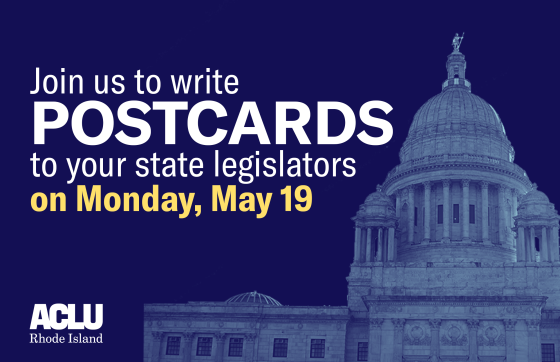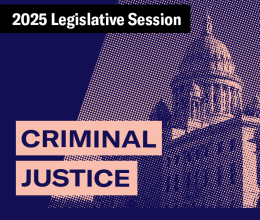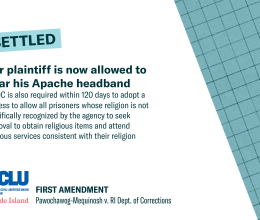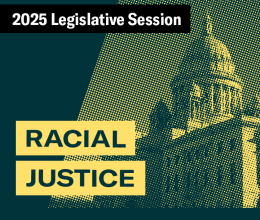In a brief filed in the R.I. Supreme Court today, the ACLU of Rhode Island is challenging the Providence Police Department’s efforts to avoid any liability for its admitted contemptuous behavior for almost two years in failing to comply with both the state’s racial profiling law and court orders that had found the Police Department in contempt for non-compliance with that law.
Last month, in appealing Judge Stephen Fortunato’s 2002 order finding the City in contempt of court, the City argued that: the Court had no authority to order it to continue to collect racial profiling data for an additional seven months; that the ACLU never should have been allowed to sue the City in the first place for violating the law; and, therefore, the ACLU’s volunteer attorney, Carolyn Mannis, should not be entitled to recover the attorneys fees she incurred in successfully bringing the lawsuit.
In its opposition papers filed today, the ACLU notes that, while the City seeks to eliminate any liability for itself or the imposition of formal remedies for its lengthy misconduct, the City nowhere contests Judge Fortunato’s finding of contempt. The ACLU brief states that the racial profiling data collection law was specifically designed to allow private civil rights groups to enforce it, and if the City’s argument against the ACLU’s standing prevailed, police departments could have easily circumvented the law.
While the City claims that the Attorney General adequately represented the public’s interest in the case, the ACLU brief argues that the organization played a crucial role in ensuring the City’s compliance with the law, and in pursuing contempt proceedings against the police department that finally led to some minimal compliance with the law. Finally, the brief takes issue with the City’s argument that the ACLU filed the suit for the sole purpose of obtaining fees, pointing out that “if the City began complying with the law when it received notice [from the ACLU before filing suit], there would be no basis for an award of attorney’s fees.” In any event, the brief notes that any fee awards go to the volunteer attorney, not the ACLU.
The ACLU’s brief concludes: “Contempt is a serious matter left to the discretion of the trial judge. In this case, given the facts and circumstances involved, the lower court acted reasonably in meting out justice in a difficult case. This Court should not disturb the lower court decision absent some compelling reason given the gravity of the issues involved. This is especially true here, where the Providence Police have not offered one iota of evidence to contradict the lower court’s finding of contempt.” When the report on Providence’s data was finally completed, it documented widespread racial profiling by the department.
ACLU volunteer attorney Mannis said today: “While Providence would like the public to believe this case is about money, the truth is that it is about serious contemptuous behavior on the police department’s part and their attempt to avoid any punishment for their heinous conduct.”




